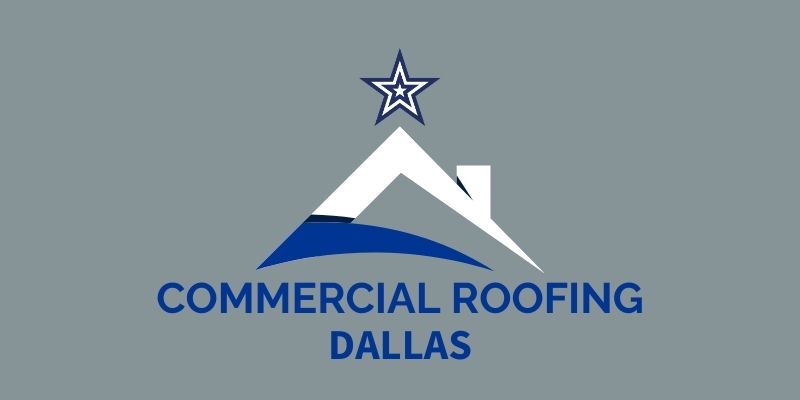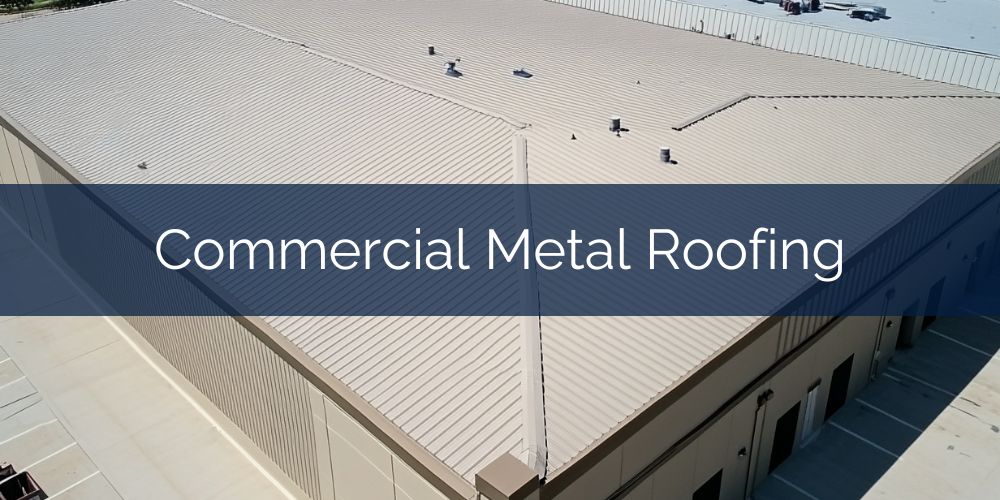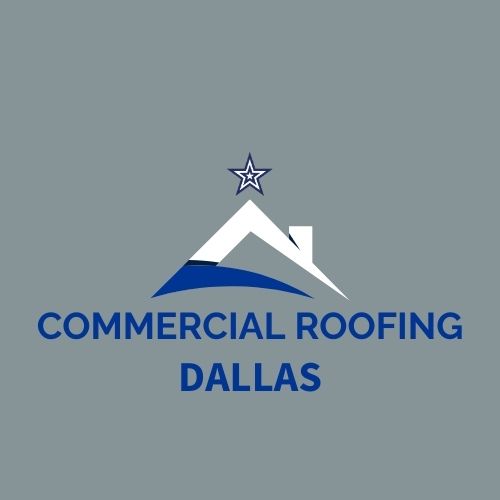Commercial metal roofing involves the installation, repair, and maintenance of metal roofing systems specifically designed for commercial buildings. These roofing systems, often made from materials such as steel, aluminum, or copper, are popular choices for offices, shopping centers, and industrial facilities due to their durability, longevity, and low maintenance requirements. Unlike traditional roofing options, commercial metal roofing offers superior resistance to harsh weather conditions and can contribute to energy efficiency through reflective coatings. It is engineered to withstand high winds, heavy snowfall, and varying temperatures, making it ideal for safeguarding commercial properties. Commercial Roofing Dallas provide commercial metal roofing services across the Dallas, Texas area.
What Is Commercial Metal Roofing?
Commercial metal roofing involves using metal panels as the roofing material to protect commercial buildings. These roofs are typically made of materials like steel, aluminum, copper, or zinc alloys, each chosen for its specific characteristics such as durability, weight, and cost-effectiveness. Metal roofing is known for its longevity, energy efficiency, and resistance to harsh weather conditions, making it a popular choice for commercial properties. The design can vary, with options such as standing seam, corrugated panels, or R-Panel (PBR Panel Roofing), allowing for aesthetic versatility to match building architecture. Additionally, metal roofs are low-maintenance and environmentally friendly, often containing a high percentage of recycled materials, and they offer excellent fire resistance. Installation of commercial metal roofing requires specialized skills to ensure proper fitting, sealing, and insulation, which can influence the roof's overall performance and lifespan.
In Dallas, Texas, commercial metal roofing is ideal because it can withstand the area's high temperatures, occasional hail, and gusty winds. The installation methods, such as securing panels with clips and fasteners designed for thermal resistance and expansion, are crucial to manage Dallas's temperature fluctuations throughout the year.
Have a question about an upcoming project?
What Are The Benefits Of Metal Roofing For Commercial Buildings In Dallas?
Metal roofing offers durability, energy efficiency, and weather resistance for commercial buildings in Dallas. Its long lifespan and low maintenance requirements make it a cost-effective choice. Furthermore, its ability to withstand harsh weather conditions is ideal for the Dallas climate.
- Durability: Provides a long-lasting solution with a lifespan of 40-70 years.
- Energy Efficiency: Reflects solar heat, reducing cooling costs in Dallas's hot climate.
- Weather Resistance: Withstands Dallas's severe windstorms and hail events effectively.
- Low Maintenance: Requires minimal upkeep, saving time and maintenance costs over time.
- Fire Resistance: Has a Class A fire rating, ensuring superior protection against fire hazards.
1. Durability: Provides a long-lasting solution with a lifespan of 40-70 years
Durability refers to the ability of roofing materials to withstand environmental and mechanical stresses over a long period, ensuring minimal maintenance and replacement costs. The enhanced durability of metal roofing delivers significant benefits for commercial buildings in Dallas, where weather fluctuations and hail are common. This longevity minimizes disruptions and expenses due to roof replacements, aligning with the long-term operational needs of businesses in the area. Metal roofs resist corrosion, fire, and pests, making them a reliable choice for demanding commercial settings. Their long service life also supports sustainable building practices by reducing roofing waste. Investing in durable metal roofing underscores a commitment to both economic and environmental stewardship.
2. Energy Efficiency: Reflects solar heat, reducing cooling costs in Dallas's hot climate.
Energy efficiency is the ability of a roofing material or system to reduce energy consumption, such as cooling costs, by reflecting rather than absorbing heat. The energy efficiency of commercial roofing in Dallas is crucial due to its hot climate, where high temperatures can significantly increase cooling demands. By reflecting solar heat, metal roofing can substantially lower air conditioning costs, making it a valuable investment for commercial buildings. Implementing an energy-efficient roofing solution is an effective strategy for businesses aiming to reduce operational expenses in hot climates. In addition to lowering cooling costs, energy-efficient roofing helps extend the lifespan of HVAC systems by reducing their load, leading to fewer maintenance issues and longer system durability. The improved thermal performance also contributes to enhancing occupant comfort by maintaining a more consistent internal temperature. By advocating for energy-efficient roofing, businesses not only save on costs but also contribute to environmental sustainability by reducing their carbon footprint and supporting green building initiatives.
3. Weather Resistance: Withstands Dallas's severe windstorms and hail events effectively.
Weather resistance is the ability of a commercial roofing system to endure harsh climatic conditions, including strong winds and hailstorms, without sustaining significant damage or performance loss. Durability against severe weather phenomena is crucial for commercial buildings in Dallas due to the region's frequent exposure to intense windstorms and large hail, which can cause extensive damage to less resilient roofing systems. Metal roofing, known for its robust construction and ability to withstand high-impact forces, offers an advantageous solution for maintaining structural integrity under such conditions. Enhancing weather resistance through durable materials like metal can significantly reduce maintenance and repair costs associated with storm damage. Investing in a roofing system that resists Dallas's extreme weather conditions contributes to the long-term financial stability and operational continuity of commercial enterprises by minimizing disruption and repair downtime. Routine maintenance and inspections ensure that even the most weather-resistant systems retain their protective efficacy over time, optimizing the lifespan and reliability of the investment.
4. Low Maintenance: Requires minimal upkeep, saving time and maintenance costs over time.
Low maintenance in commercial roofing refers to roofing systems that demand minimal regular care and repair work, thus reducing both time and financial expenditure related to upkeep. The low maintenance requirement of metal roofing makes it particularly advantageous for commercial buildings in Dallas, as it combines durability with minimal need for ongoing repairs or replacement. This efficiency aligns with the fast-paced business environment where reducing downtime for building maintenance is crucial. By requiring less frequent interventions, businesses can allocate resources more effectively while still preserving the integrity of their infrastructure. Metal roofing’s resistance to common issues such as rust, corrosion, and pests contributes to its low maintenance profile. This reliability is especially valuable in regions like Dallas, where extreme weather conditions can otherwise lead to significant maintenance challenges. Investing in a low-maintenance roofing solution not only supports a business’s operational efficiency but also enhances its long-term cost-effectiveness and property value.
5. Fire Resistance: Has a Class A fire rating, ensuring superior protection against fire hazards.
A Class A fire rating signifies a roofing material's highest level of fire resistance, providing excellent protection against the spread of fire. In commercial roofing, such superior fire resistance is crucial, especially in densely populated urban areas like Dallas, where building safety is a top priority. Class A fire-rated roofing systems can help prevent the spread of flames during a fire, potentially reducing structural damage and enhancing occupant safety. Choosing a Class A fire-rated roofing system not only complies with regional building codes and insurance requirements but also contributes to the overall resilience and longevity of commercial buildings. Roofing materials with high fire resistance are also less likely to ignite from external sources, such as nearby wildfires or stray embers, making them a wise investment in areas prone to fire-related risks. Regular maintenance and inspections can further enhance a roof’s ability to withstand fire exposure, ensuring long-lasting protection for commercial assets.
How Durable Is Commercial Metal Roofing In Dallas's Climate?
Commercial metal roofing is highly durable in Dallas's climate due to its resistance to severe weather conditions and longevity. Dallas experiences hot, sunny summers and occasional storms, but metal roofing is designed to withstand these elements efficiently. With proper installation and maintenance, metal roofs can last for several decades.
- Weather Resistance: Effectively combats Dallas's intense heat and sporadic storms.
- Energy Efficiency: Reflects sunlight, reducing cooling costs during hot Texas summers.
- Longevity: Can last 40-70 years with proper maintenance, far exceeding other materials.
- Fire Resistance: Non-combustible, protecting against the hazards of wildfires and lightning.
- Minimal Maintenance: Requires little upkeep, saving time and money over its lifespan.
1. Weather Resistance: Effectively combats Dallas's intense heat and sporadic storms
Weather resistance is the capability of a roofing material to endure and function optimally under diverse and extreme weather conditions, such as those experienced in Dallas, where high temperatures and sudden storms are common. Commercial metal roofing's durability in Dallas's climate is significantly enhanced by its superior weather resistance, as metal roofs efficiently reflect the sun’s heat and can withstand the impact of severe storms. The material's structure offers robust protection against weather-related wear and tear, thus maintaining structural integrity and longevity. Metal roofing systems include features like rust-resistant coatings that further bolster their ability to combat heat and moisture effectively. In addition, routine maintenance and inspections can ensure these protective measures continue to function correctly, further extending the roof's lifespan. By choosing a material that excels under harsh weather conditions, businesses in Dallas can protect their investment and ensure operational continuity.
2. Energy Efficiency: Reflects sunlight, reducing cooling costs during hot Texas summers.
Energy efficiency is the ability of a roofing material or system to minimize energy consumption, particularly by reflecting sunlight to lower cooling costs during extreme heat. The significance of energy efficiency in commercial roofing is paramount in Dallas's climate due to its hot and sunny conditions, which can drastically increase cooling costs. A roofing system that reflects sunlight can lead to significant energy savings, making it a valuable component for businesses looking to manage overhead costs effectively. Utilizing energy-efficient roofing materials in commercial buildings can not only improve the building’s sustainability but also enhance indoor comfort. These systems help minimize the strain on HVAC systems, extending their operational lifespan while offering financial savings through reduced energy bills. Ensuring that roofing components meet energy efficiency standards is crucial for optimal performance and environmental impact reduction in Texas’s demanding climate.
3. Longevity: Can last 40-70 years with proper maintenance, far exceeding other materials
Longevity refers to the extended lifespan of commercial roofing materials, which can endure for 40-70 years with diligent maintenance and care. In Dallas's climate, characterized by intense heat and occasional severe weather, the durability of commercial metal roofing is particularly advantageous. A lifespan of 40-70 years means that metal roofing can withstand the local climatic challenges longer than many other materials, reducing the frequency and cost of roof replacement. Its inherent resistance to UV radiation, thermal cycling, and strong winds makes it a resilient choice for commercial buildings in Dallas. Proper maintenance is crucial to achieving this longevity; regular inspections and timely repairs are essential to address any minor damage before it escalates. Protective coatings and sealants may also be applied to enhance weather resistance and prevent corrosion. By investing in routine maintenance, businesses can extend the lifespan of their metal roofing, ensuring they receive the full benefits of their initial investment while minimizing environmental impact through reduced material waste over time.
4. Fire Resistance: Non-combustible, protecting against the hazards of wildfires and lightning.
Fire resistance refers to a roofing material's ability to withstand combustion and mitigate damage from external fire hazards like wildfires and lightning. In Dallas's climate, where dry, hot conditions can lead to increased fire risk, having a commercial roof with strong fire resistance is crucial. Non-combustible materials in roofing help prevent the initiation and spread of fire, thus safeguarding building occupants and assets. Using fire-resistant roofing systems in regions susceptible to wildfires can also result in insurance benefits due to increased safety factors. Furthermore, when integrated with other protective measures, such roofing systems enhance the building's overall resilience against natural disasters. Facility managers should prioritize regular evaluations and maintenance to ensure that fire-resistant features remain effective over the roof's lifespan.
5. Minimal Maintenance: Requires little upkeep, saving time and money over its lifespan.
Minimal maintenance in commercial roofing refers to roofing systems that demand significantly fewer resources and time for upkeep, thereby ensuring cost-effective longevity. Dallas’s climate, characterized by intense heat and occasional severe weather, makes minimal maintenance roofing systems particularly valuable, as they are designed to withstand harsh conditions without frequent interventions. Such roofs offer the resilience needed to endure Dallas’s climate while providing long-term financial and operational benefits through reduced maintenance efforts. Choosing a roofing system with minimal maintenance requirements can lead to considerable savings in both labor and material costs over the roof's lifespan. This advantage is crucial for commercial entities looking to focus resources on core business operations rather than extensive roof care. Implementing a roof that requires minimal upkeep can also reduce disruptions to business processes and minimize the risk of unplanned repairs or downtimes.
What Are Common Metal Roofing Issues In Dallas Commercial Buildings?
Common metal roofing issues in Dallas include weather-related damage, thermal expansion, and corrosion. The fluctuating weather in Dallas, characterized by intense heat and heavy storms, significantly affects metal roofs' durability and performance. Poor installation or maintenance can exacerbate these issues, leading to costly repairs or replacements.
- Weather-Related Damage: Frequent storms can cause leaks and physical damage to metal roofs.
- Thermal Expansion: Heat fluctuations may cause expansion and contraction, leading to panel warping.
- Corrosion: Humidity and pollution can accelerate corrosion, compromising the roof's integrity.
- Poor Installation: Improper installation leads to ineffective sealing and increased vulnerability to weather elements.
- Lack of Maintenance: Neglect results in debris accumulation, drainage issues, and accelerated wear.
1. Weather-Related Damage: Frequent storms can cause leaks and physical damage to metal roofs.
Weather-related damage to metal roofs encompasses water infiltration and structural deterioration due to repeated exposure to storms and harsh weather conditions. Dallas commercial buildings are prone to experiencing frequent storms that can exacerbate weaknesses in metal roofing, leading to significant maintenance challenges. Metal roofs, although durable, can develop vulnerabilities like loose seams and fasteners over time, which storms can exploit, causing leaks and physical damage. Regular inspections and proactive maintenance are essential to identify areas where the metal roofing may be vulnerable to storm damage. Reinforcing seams, ensuring proper drainage, and promptly addressing minor issues can prevent more extensive damage caused by severe weather events. Additionally, investing in high-quality, weather-resistant materials can enhance the roof's durability and mitigate future storm-related damage.
2. Thermal Expansion: Heat fluctuations may cause expansion and contraction, leading to panel warping
Thermal expansion is the process by which roofing materials expand and contract due to heat fluctuations, potentially causing panels to warp and lose structural integrity. Thermal expansion presents a common issue for metal roofing in Dallas commercial buildings due to the area's significant temperature swings between day and night. Over time, this consistent expansion and contraction can lead to panel misalignment or create gaps, compromising the roof's water-tightness and stability. To mitigate the impacts of thermal expansion, a flexible design allowance such as expansion joints should be incorporated to accommodate material movement. Regular inspections ensure that any panel warpage is addressed promptly, preserving the roof's integrity. Additionally, choosing materials with a low thermal expansion coefficient can further reduce the risks associated with temperature fluctuations in variable climates like that of Dallas.
3. Corrosion: Humidity and pollution can accelerate corrosion, compromising the roof's integrity
Corrosion is the gradual degradation of metal roofing materials due to chemical reactions with environmental factors such as humidity and pollution. Corrosion is a significant concern for metal roofing in Dallas commercial buildings due to the city's high humidity and potential exposure to industrial pollutants. These conditions can accelerate the formation of rust and other corrosive elements, leading to structural weaknesses and leaks. To mitigate corrosion risks, regular inspections and maintenance are crucial, including the application of protective coatings that can shield metal surfaces from the effects of moisture and pollutants. Selecting corrosion-resistant roofing materials or alloys can also help enhance the roof's longevity. Implementing proper drainage and ensuring that nearby pollution sources, like factories, are controlled can further reduce corrosion risk.
4. Poor Installation: Improper installation leads to ineffective sealing and increased vulnerability to weather elements
Poor installation in commercial roofing refers to the incorrect application of roofing materials, resulting in inadequate sealing and heightened exposure to adverse weather conditions. Poor installation is a critical issue for commercial buildings in Dallas, where extreme weather conditions, such as strong winds and heavy rain, can easily exploit any flaws in the roofing system. Ineffective sealing due to improper installation can lead to leaks and structural damage, compromising the building's safety and energy efficiency. To ensure a reliable roofing system, it's crucial to employ skilled professionals who are well-versed in the correct installation techniques for various roofing materials. Regular inspections by experienced contractors can identify installation mistakes early, allowing for timely corrections. Investing in quality workmanship up front can prevent costly repairs and extend the overall lifespan of the roof.
5. Lack of Maintenance: Neglect results in debris accumulation, drainage issues, and accelerated wear
Lack of maintenance involves the failure to regularly inspect and repair a commercial roof, resulting in an accumulation of debris, drainage blockages, and faster deterioration due to unchecked wear. Commercial roofing issues in Dallas frequently arise from neglect, as debris and blockages from inadequate maintenance can lead to significant water damage. This is particularly problematic in Dallas, where heavy rains can exacerbate drainage problems, leading to costly repairs and potential interior damage. Regular maintenance checks are crucial to removing debris and ensuring that drainage systems remain clear, which is vital for preventing water pooling and subsequent roof damage. Implementing a maintenance plan reduces the chance of surprise leaks or accelerated wear, extending the roof's lifespan and maintaining its structural integrity. Additionally, timely maintenance can reveal minor issues before they become major problems, preserving both the building's safety and the company's finances.


